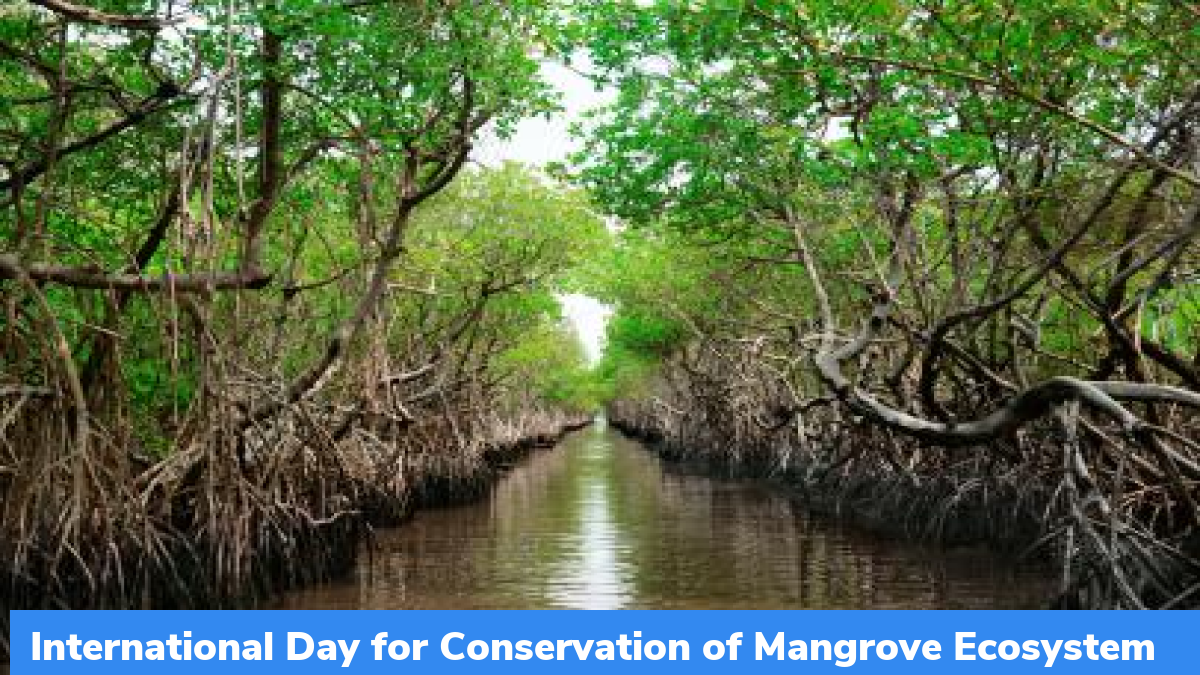July 26: International Day for Conservation of Mangrove Ecosystem
The International Day for the Conservation of the Mangrove Ecosystem is observed on July 26, annually. It seeks to raise awareness on importance of mangrove ecosystems. Mangroves are considered as “a unique, special and vulnerable ecosystem”. It also seeks to provide solutions for sustainable management, conservation and uses of the mangroves.
When was the day adopted?
- UN Educational, Scientific and Cultural Organisation (UNESCO) had adopted the International Day for Conservation of Mangroves Ecosystem in 2015.
- The day commemorates the Greenpeace activist Hayhow Daniel Nonoto.
- On July 26, 1998, the activist died of a heart attack while protesting for re-establishment of mangrove wetlands in Muisne, Ecuador.
Significance of the day
- Mangroves are significant for the wellbeing, food security, and protection of coastal communities across the world.
- They extend support to the rich biodiversity, including fish and crustaceans.
- They act as a barrier against tsunamis, storm surges, erosion and rising sea levels.
- They also act as boundaries between sea and land as well as provide protection and food security to several coastal communities.
- Soils of Mangrove ecosystem acts as carbon sinks, and are capable of storing 10 times more carbon as compared to land-based forests.
Mangroves in India
As per Forest Survey Report 2021, Mangrove cover in India has increased by 17 sq km as compared to 2019 assessment. It now spread to 4,992 sq km. Three states in which highest increase in mangrove cover was observed include- Odisha (8 sq km), Maharashtra (4 sq km) and Karnataka (3 sq km).
Month: Current Affairs - July, 2022
Category: International / World Current Affairs







